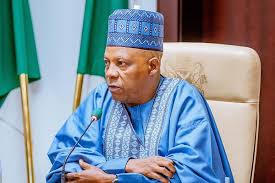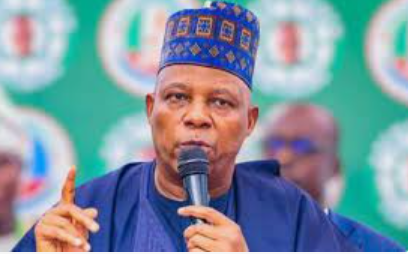The Tinubu-led Federal Government has announced that its tough economic reforms are starting to produce positive outcomes, as reflected in Nigeria’s third-quarter 2024 Gross Domestic Product (GDP) growth.
Vice President Kashim Shettima highlighted the progress during the 147th National Economic Council (NEC) meeting held on Thursday at the Presidential Villa, Abuja. He described the reported 3.46% GDP growth as a reassuring indicator of a promising economic future.
Addressing NEC members, Shettima commended their contributions to national economic development and urged them to prepare for the challenges of the upcoming year. He emphasized the importance of assessing how the policies and projects implemented this year have shaped the economy.

“This meeting is not only our final one for the year but also an opportunity to evaluate whether our actions have truly prioritized the collective good over individual interests,” Shettima stated, according to a release by his spokesman, Stanley Nkwocha.
The Vice President affirmed that the reforms initiated by the administration are beginning to bear fruit. “Difficult decisions have been taken to redirect the course of our national economy, and the results are beginning to show. The recent 3.46% GDP growth reflects not just numbers but the collective efforts and sacrifices made by all stakeholders,” he said.
Shettima noted that the meeting included a presentation from the World Bank on the current state of the economy, which underscored opportunities to enhance primary healthcare, basic education, and human capital development.
He stressed that NEC’s democratic nature, including diverse opinions and dissenting voices, is vital to governance. “This Council reflects the democratic traditions championed by President Bola Ahmed Tinubu, who ensures it remains a hub of collaborative governance,” Shettima said.
He further assured NEC members that their recommendations and contributions would not be overlooked. “No proposal put forward in this chamber has been taken for granted,” he added.
The World Bank’s report presented during the meeting, according to Shettima, offers strategies to address inequalities and position Nigeria’s workforce to compete in the global economy.
“This initiative promises to strengthen our basic education and healthcare systems, ensuring lasting impacts on human capital indices,” Shettima concluded.




